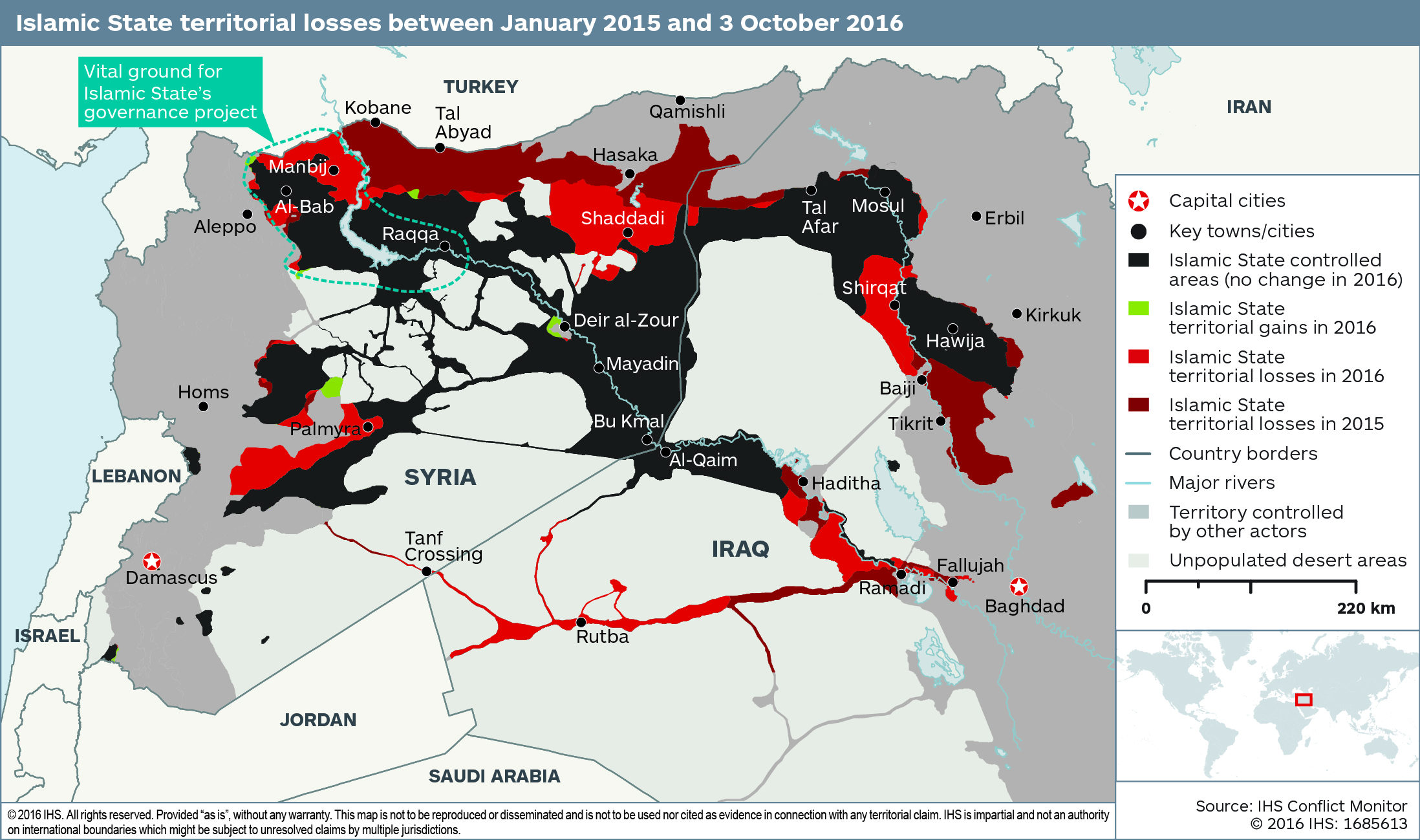ISIS is likely close to losing its Iraq capital, and it’s indicative of a larger problem for the terrorist group – analysis from the IHS Conflict Monitor shows that ISIS’ territory has been shrinking for the past two years with no sufficient gains to make up for it.
It goes against ISIS’ core message of “remaining and expanding” and indicates that the group is on the defensive in the Middle East.
IHS found that ISIS’ so-called “caliphate” shrunk 16% in the first nine months of 2016 and 14% in 2015.
Now Iraqi forces have begun the long-awaited operation to liberate Mosul, ISIS’ stronghold in Iraq. It’s the most significant city the group holds aside from Raqqa, ISIS’ de-facto capital in Syria.
In Iraq, ISIS' territory has shrunk from 40% of the country at its peak to roughly 10% now.
The group might have difficulty recruiting in light of its recent record of losses. When ISIS was first seizing territory across Iraq and Syria, thousands flocked to join its Islamic State amid the excitement of its rapid growth. But now ISIS' reason for existing - establishing a caliphate governed by its strict Islamic laws - seems to be under threat.

